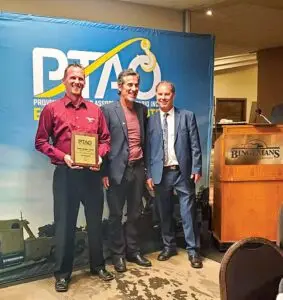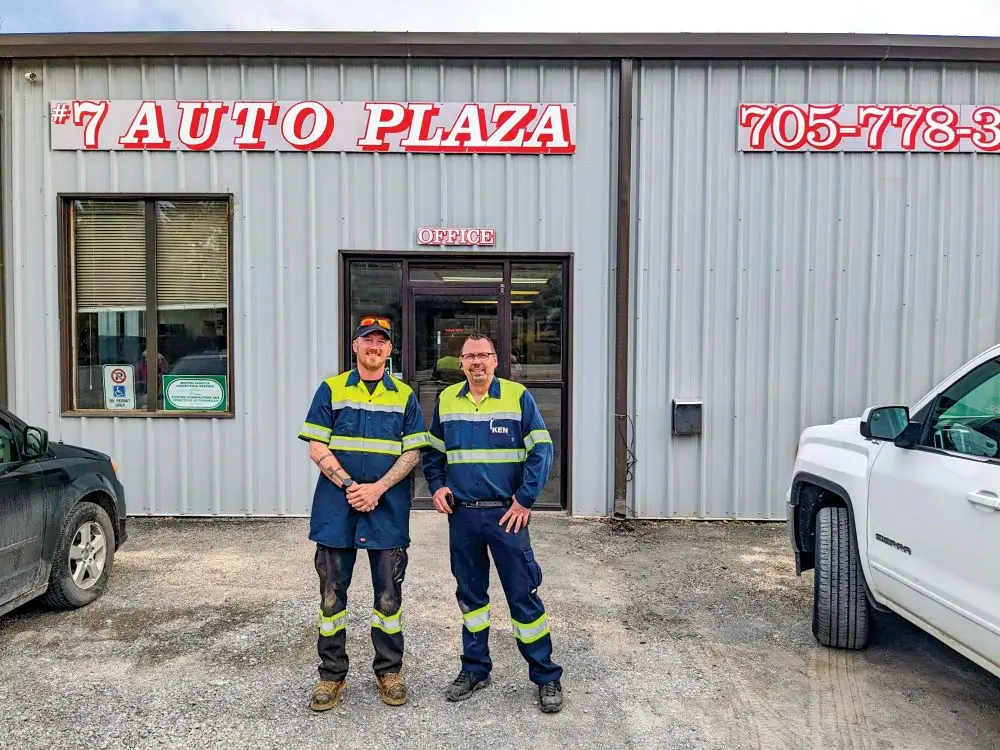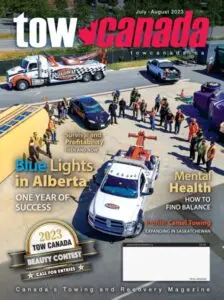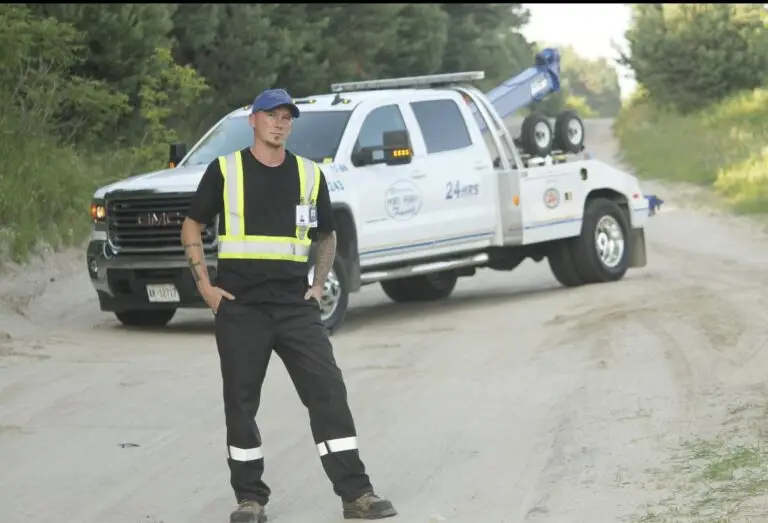Witnessing a horrific accident can change one’s life. For a tow truck operator, it might seriously affect their mental well-being.
by Dan Steinhauer
Mental health has a diverse impact on all of us, particularly within the towing industry. Over the years, I have faced personal battles, some worse than others, and some just because of a poor customer experience. I have been towing for nearly 15 years. I started under a broker when I was only 23 years old, and he showed me the ropes to towing, and I got hooked.
Over the years I have challenged myself to do better and grow my knowledge. I worked my way up, starting in a one-ton wrecker, then a flatbed, a medium-duty, a heavy-duty, and then eventually a rotator. The challenge has been very exciting. I have seen many different parts of Ontario, and I have had a blast doing so.
I was introduced to WreckMaster training in 2015 when I completed my Level 2/3 course with instructor Jeff Martin, and again I was hooked. I fell in love with the program, and pushed myself to work up to Level 6/7. I was awarded Student of the Class in my Level 4/5, and a few weeks later, I completed my Level 6/7. Since then, I have sat in on many other 2/3 and 4/5 classes.
Then the pandemic hit, which stopped a lot of in-person classes; however, it didn’t stop me. I completed every single online module through WreckMaster, and I even did several online seminars. Then the Level 8/9R was introduced in Vancouver. I jumped all over it, and I booked my plane ticket before even registering for the class. I will say it was a game changer in my career and personal life.
“The overall demand can be intense and very extreme.”
During all of this, I was of course on the road helping people and working the daily grind.
Then came January 24, 2022, a day I will never forget. I was working in a snowstorm with my colleague, Josh Whitney, very late at night, and we had four wrecks come in within minutes of each other. Go time! Right?
As we were finishing up the last two, I had just ran a credit card for Josh, literally on the overpass directly above him, and I told him I’d be right there to help him hook up the tractor trailer he had to tow. While currently under tow myself with a tractor trailer, I made the on ramp to go back eastbound to help Josh, and then we could both head to the yard.
Then, with the Ontario Provincial Police (OPP) on scene directing traffic, Josh was hit from behind while hooking up his truck. Without getting into too much detail, Josh was hurt badly, and I witnessed the whole thing. Luckily, the OPP was right there, and we were able to get first aid quickly. Then came the push to clean up the mess, and to this day I can’t tell you how I managed to work my way through that scene, but I did.
Running heavies has been a passion of mine for many years, and I gave it my all to be one of the best. However, to be the best you also need to know when to call it quits. After months of battling anxiety and nightmares after the above incident, it was clear that it was affecting my day-to-day abilities and my overall confidence in my job. I absolutely love the towing industry and did not want to give it up, so after many conversations with my wife, I decided that the best way to continue my towing path was to go back to light-duty towing. I can still do what I love, but with half the stress.
I’m an 8/9R level WreckMaster, so this decision may seem silly. I have the best training, knowledge, and discipline to do my job. However—worst case—I can always do light duty for a year and then go back to heavy.
Since making the jump down, my mental health has gotten a lot better. I still have my moments, but I’m back to my roots and can focus a lot better on myself and be a part of what I love.
Running heavy was absolutely amazing, but it’s not easy. You can be on the side of the highway for greater lengths of time hooking up, accident scenes are a lot bigger, and you’re dealing with massive amounts of resistance, all at the same time. The overall demand can be intense and very extreme. When you’re out on your own dealing with thousands of pounds for hours on end, some people love the adrenaline, and I did too. However, after Josh’s accident, it was too much adrenaline.
My counselor told me that my mind was constantly in overdrive, or what’s known as fight or flight. Constantly being in overdrive is not good for anyone, and when your body has enough, you crash, and it sucks. I had to get out of overdrive and let my mind and body relax before something happened and I (or someone else) got hurt.

“After months of battling anxiety and nightmares, it was affecting my day-to-day abilities and my overall confidence in my job.”
Months after returning to light-duty towing, the best thing that could have ever happened to me happened. I was offered a towing operations manager position. This has been a long-time goal of mine, to be a part of the industry and to use my knowledge and discipline to help others in a way that I never could have before. I plan to use all my skill sets to the best of my ability, and with all my experience in light and heavy-duty towing, what an opportunity to use my skills for customers.
I plan to use every tool in my toolbox and all the lessons learned from the road to make my role the best it can be. As an 8/9R level WreckMaster, I will say that this will be my biggest tool, due to the level of discipline and knowledge that I have acquired.
My advice to anyone when it comes to mental health in either light-duty or heavy-duty towing is not to be afraid to talk to someone, whether it be your spouse or a fellow co-worker. Reach out to your provincial association and seek therapy. Do not let the demands of the industry bottle up. Everyone has a breaking point. Some of us are better than others, but we are taught right from day one of training to use the tools given to us. We also have the tools for mental health. You may have to search for them, but we are tow operators. We don’t give up on our customers, or that car stuck in the ditch, or that transport fully loaded on its side. Do not be afraid to seek help! 🍁
Cover photo: Dan Steinhauer and Ken Westlake, an owner of #7 Auto Plaza


